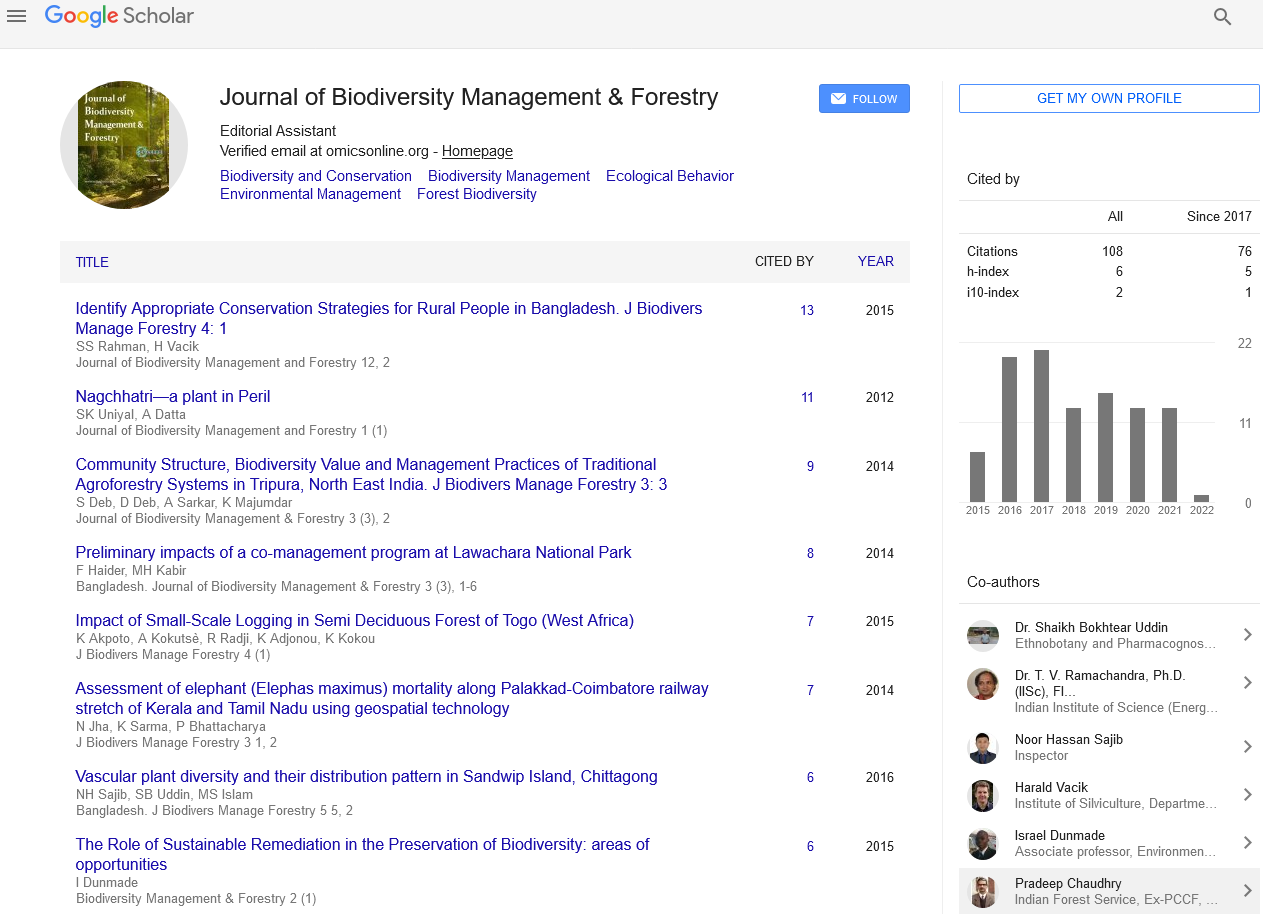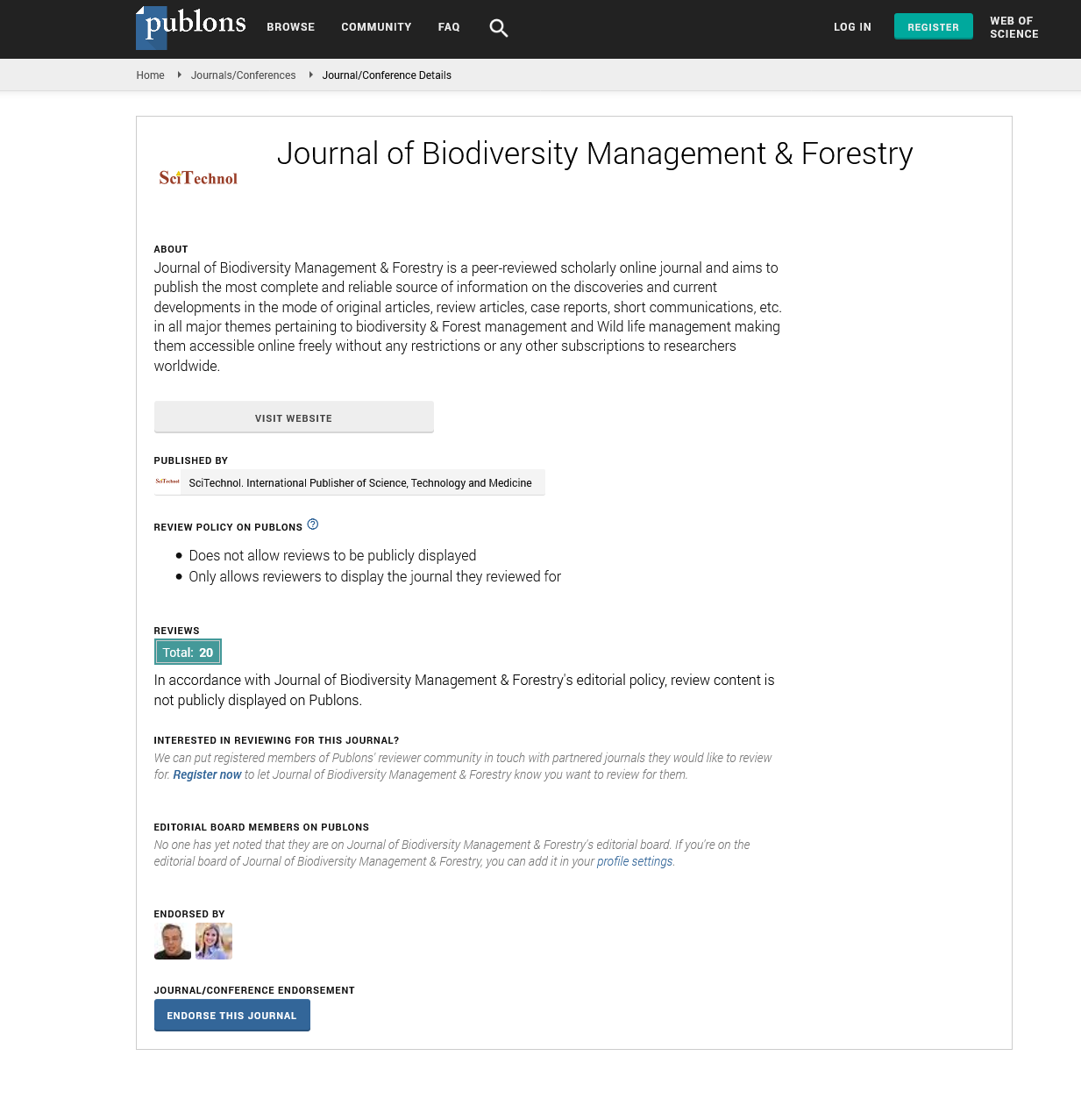Research Article, J Biodivers Manage Forestry Vol: 2 Issue: 3
Analysis of Tree Diversity Patterns in the Tropical Evergreen and Moist Deciduous Forests of the Middle Andaman Islands, India
| Stutee Gupta 1 and P Rama Chandra Prasad2* | |
| 1Forestry and Ecology Division, Indian Institute of Remote Sensing, Dehradun-248001, Uttaranchal, India | |
| 2Lab for Spatial Informatics, International Institute of Information Technology, Gachibowli, Hyderabad- 500032, India | |
| Corresponding author : Dr. P. Rama Chandra Prasad Lab for Spatial Informatics, International Institute of Information Technology, Gachibowli, Hyderabad- 500032, India Tel: +91-9246109160; Fax: +91-40-6653 1413; E-mail: rcprasad@iiit.ac.in; rcp_ncmsl@yahoo.co.in |
|
| Received: June 07, 2013 Accepted: November 19, 2013 Published: November 23, 2013 | |
| Citation: Gupta S, Rama Chandra Prasad P (2013) Analysis of Tree Diversity Patterns in the Tropical Evergreen and Moist Deciduous Forests of the Middle Andaman Islands, India. J Biodivers Manage Forestry 2:3. doi:10.4172/2327-4417.1000114 |
Abstract
Analysis of Tree Diversity Patterns in the Tropical Evergreen and Moist Deciduous Forests of the Middle Andaman Islands, India
Tropical rainforests constitute one of the world’s richest biomes with high species diversity. They play a crucial role in controlling global climate besides providing several direct benefits known to all. Several studies have been carried out to estimate the biodiversity of these forests at various sites across the world and have helped in identifying potential sites of species richness and diversity as well as hotspots that harbour high endemism. However, Andaman and Nicobar Islands situated in between the Bay of Bengal in the west and the Andaman Sea in the east have not been explored much owing to their remoteness and inaccessibility, along with hostile cannibalistic natives and other tribal communities. In the current study, phytosociological data were collected in two predominant forest types of the Middle Andaman Islands to analyze their tree diversity patterns.
 Spanish
Spanish  Chinese
Chinese  Russian
Russian  German
German  French
French  Japanese
Japanese  Portuguese
Portuguese  Hindi
Hindi 
